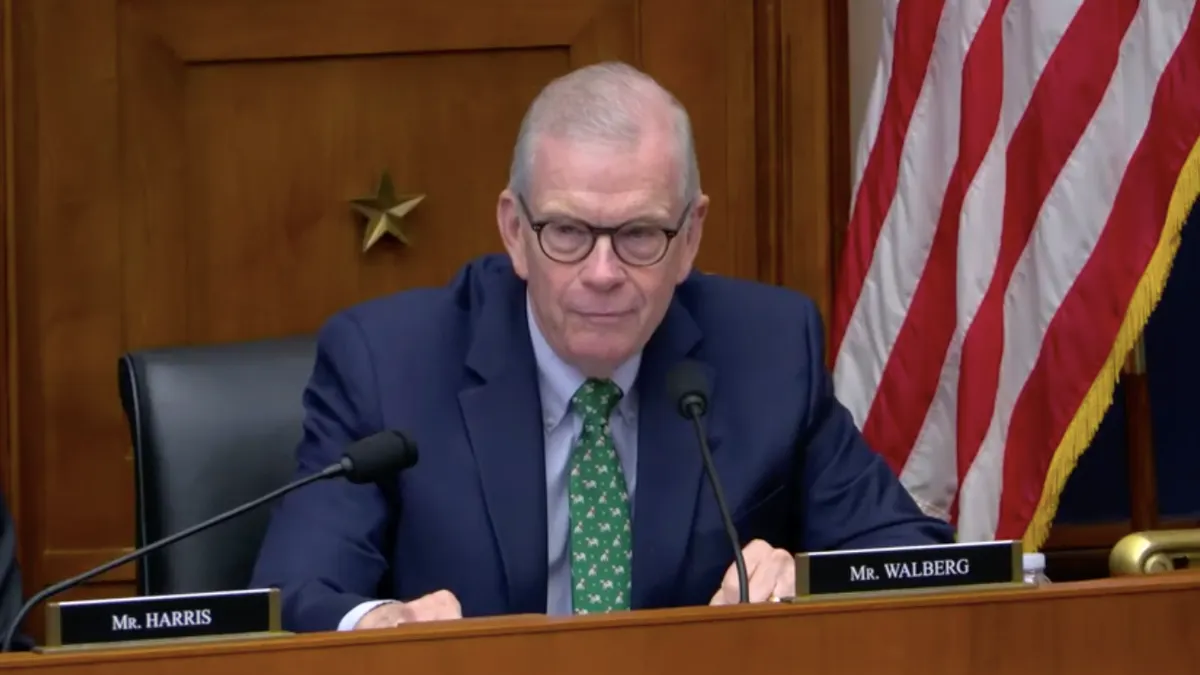A proposed federal rule that supporters said would have made it easier for schools to be reimbursed for school-based Medicaid services was withdrawn by the U.S. Department of Education on Dec. 27.
In its withdrawal notice, the Education Department cited limited resources. The agency also said it ran out of time to fully analyze barriers to Medicaid services provided to students outside of school as a result of a school accessing that student's public benefits for services provided in-school.
Leadership at the department is set to change on Jan. 20, when Donald Trump is inaugurated as the 47th president.
The notice also said that during a roughly two-month public comment period that closed Aug. 1, 2023, more than 9,700 public comments were submitted. Most of those comments — over 8,000 — came from two large write-in campaigns opposing the draft rule, including one from a national parents' rights organization.
Of the remaining 1,700 comments, about half were supportive of the proposed rules. Those favorable comments included submissions from national organizations representing educators and service providers. The other half were in opposition and included responses from major disability rights organizations and parent groups, according to the notice.
Seeking a solution
The proposed rule, first issued in May 2023, recommended a rare amendment under the Individuals with Disabilities Education Act, which guarantees that students with disabilities receive supports for learning and related services.
Specifically, the Education Department sought to eliminate an IDEA provision that requires one-time parental consent before schools file first-time invoices for school-based specialized services for children eligible for public benefits under Medicaid, the Children’s Health Insurance Program, or other public insurance and benefits programs. No other parental consent procedure under IDEA would have been affected.
Supporters of the proposed rule said that the one-time parental consent for school-based Medicaid billing was duplicative, because parents give their consent for Medicaid providers, including schools, to access public benefits for billing purposes when enrolling a child or themselves in Medicaid.
Many children with disabilities who are eligible for IDEA are also enrolled in Medicaid due to their disability status or based on their family’s income. Children with disabilities and special healthcare needs are more likely to be low-income, and those covered by Medicaid are more likely to have greater healthcare needs than those covered by private insurance, the proposed rule said.
School-based Medicaid-eligible services for students with disabilities, for example, could include speech therapy and physical and mental supports. The proposed rule said both students with disabilities who are eligible for public insurance benefits and those who aren’t would continue to receive their free individualized education program services regardless of a school’s costs for the services or access to reimbursement.
Concerns about out-of-school access
Reimbursements for school-based Medicaid services are the third or fourth largest revenue source for schools. Nationally, those reimbursements can add up to $4-6 billion to school districts for providing school-based services annually.
Several education administration groups — including the Council of Administrators of Special Education and AASA, The School Superintendents Association — that supported the proposed rule said the current parental consent process is confusing and adds extra paperwork burdens on district staff. Additionally, incomplete parental consent forms lead to the inability of districts to receive reimbursements for school-based Medicaid services, the organizations said.
In a statement emailed to K-12 Dive on Thursday, CASE said the withdrawal of the proposed rule "signals a continued lack of understanding about Medicaid and the ability of local school districts to seek reimbursement for services that are provided to students with disabilities in our public schools."
CASE added: "It is clear that local districts’ access to reimbursement for services would never result in additional costs to the parent or reduced benefits to the child."
The intention of the proposed rule, the Education Department said, was to streamline the process for getting parental consent for school-based Medicaid services. Even without the one-time parent consent requirement as recommended under the proposed rule, schools would still need to provide written notification to parents before accessing a child’s or parent’s public benefits or insurance for the first time, and annually thereafter.
But the strong opposition to the proposed rule revealed the hardships some families are encountering when trying to access Medicaid services in out of school-based settings.
An August 2023 letter from about two dozen organizations, including the National Disability Rights Network and Autism Society of America, said, “Parents are routinely informed, sometimes even after services in other settings have already been rendered, that the Medicaid agency has deemed them duplicative with school-based services and their coverage is denied.”
In its withdrawal notice, the Education Department referenced these concerns, which led the agency to pivot away from the rulemaking process to focus on providing technical assistance and working with federal agencies, states and other partners to improve school-based Medicaid services.
Moms for Liberty co-founders Tiffany Justice and Tina Descovich said in an email statement to K-12 Dive Thursday that they were pleased the Education Department pulled the draft rule.
"Parental rights are fundamental, and this move reaffirms the importance of parents' roles in their children's education and healthcare decisions," Justice and Descovish said. "We believe that parents should remain informed and have the authority to consent to how their children's public benefits are utilized, ensuring transparency and accountability in our educational systems”
The National Disability Rights Network is also supportive of the withdrawal, said Dan Stewart, managing attorney for education and employment, in an email. "NDRN had significant concerns that the proposed rule would undermine parental participation, safeguards, and informed consent in decisions related to whether schools should be permitted to seek reimbursement."
In addition to the proposed rule, several new resources were issued in recent years to support school-based Medicaid services:
- In May 2023, the Education Department and U.S. Department of Health and Human Services issued a 183-page guide for school-based Medicaid services and billing, which cited flexibilities states can use to promote access to health-related, school-based services for all Medicaid-eligible students while still adhering to federal laws and regulations.
- HHS’ Centers for Medicare and Medicaid Services announced in January 2024 that it would award 20 state grants of up to $2.5 million each over 3 years for improvements to Medicaid and CHIP school-based services.
- The Centers for Medicare and Medicaid Services released in August 2023 a toolkit for school administrators to support children and their families in retaining their Medicaid and CHIP benefits as the programs transition from pandemic-era automatic renewals — a process that's also known as "unwinding."
- A checklist of nine strategies and guidance for state Medicaid agencies assisting school systems with Medicaid reimbursements for school-based student health services was issued by the U.S. Department of Health and Human Services in September 2022.
Jenny Millward, executive director of the National Alliance for Medicaid in Education, said she was appreciative of the federal agencies' efforts to provide supports to states, districts and schools regarding school-based Medicaid services. Yet, she's disappointed the rule didn't become finalized.
"We're, I guess, disappointed and dismayed that this barrier that so many districts across the country experience couldn't be eliminated at this time," Millward said.






 Dive Awards
Dive Awards















